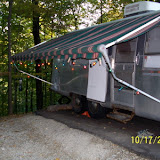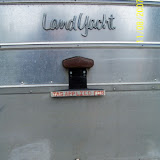I have this thirst for poems. Mary Oliver. Robert Frost. Anyone, really, who has just the right blend of the concrete embodied reality of the little horse standing by the snowy wood, or the soft animal body of the goose flying overhead, and the mystical tending toward the universal desires.
Attending to this thirst, I remembered that a book by Donald Hall, Life Work, was on my shelf. And, seeking more about form, an unopened Mary Oliver, A Poetry Handbook, on poetry's forms, a text for one who aspires to write poems -- like me. Earlier in the month, I read another wonderful text about writing, Reading like a Writer, by Francine Prose.
I watched a DVD movie, or should I say film, Local Color, a story of a young artist who wanted to learn from an old master. This film brought images and thirst together.
Rachel brought home a volume of poems assembled by Garrison Kiellor, Good Poems for Hard Times. In that volume, I found a form that I could imitate, to tell the story of getting fired. I still don’t know what I am going to do. But, I sat down and wrote the poem, because I knew that I would rather write than die. Getting fired made me feel a way of death, not of suicide, but some soul-killing thing that wanted to eat away at my heart. Writing the poem gave life to me and defended my soul from death.
Hall’s Life Work came into my hands as a bequest, a gift to my late partner, Nancy, in 1993, from our friend Jane, who loved books and poetry. Jane introduced us to Laurie R. King, still my idea of the best of the kind of fiction I want with me on a desert island.
Life Work I picked up some time after Nancy’s death, when I was wondering what would come next, as I wrote in a journal and talked into a micro-cassette recorder, talking to Nancy and missing her. I made some notes in the margins in that earlier reading. But I did not finish. I could tell that things were not going to go well for Donald, and I just could not deal with that at that time in my life.
As he recollected his grandfather's farming life, and his cancer appeared, I could not continue to travel with Donald. Nancy’s cancer was too close yet. So, I put the book on my shelf, with other poetry.
I read thirstily through the Keillor volume, but like a kingfisher watching for the shine of one fish at a time, finding the poets I knew well first. I put the volume down and picked Life Work up again.
I had to press through Life Work. It is a lovely little book, but it is not light reading. (My ordination mentor reminds me that I am very intense, so perhaps anything would be heavy reading for me.) I soldiered on to the end, as Donald began his chemotherapy, as he and Jane Kenyon held each other and wept in their anticipation of his dying.
When I finished Life Work, I picked up the Kiellor volume again and kingfished for Donald’s poems. I found Donald’s poem about Jane Kenyon’s death. What a sad irony and symmetry, that she died before he could die. She left him. His poems about her death, the theme of his book Without, express his “deep grief and fury” or so said one biographer.
I know that grief and that fury.
The partner of a colleague took her life last week. I wrote a poem to try to defend my senses against, again, death. How wonderful, how helpful to me, that I can turn to Donald Hall in his loss of Jane Kenyon, and to Mary Oliver in her loss of Molly Malone Cook (Thirst; Our World). Others have sought through poems to defend against death, to rage on Heaven and drag the clanging metal cups of their earth-prison cell against the bars and make themselves heard, to get. it. out. C. S. Lewis used his craft. Hemingway used his.
How many times in my own experience have I found myself overswept by a memory of a specific grief, and have been told to “let it go”? These phrases are so common because death is. Eventually, for some people, these phrases go on to become helpful; that’s why the very people who could not hear them when they were tossed out in the height of grief go on to say them to the other sufferers in the height of their grief. These phrases sell a lot of shiny and frilly commercial greeting cards. But, please, there must be a time for silence. Can a card contain silence in a kind of large blank space, with something at the very bottom, or centered in the middle, like "I am so sorry" or "I miss her, too." or "I do not want you to be alone. Come."
Who gets to decide when you let go? What is the deadline after which your grief becomes a pathology? I'll tell you one: some arrogant bastard in an office with framed diplomas on the wall. When you've exhausted your curses, against the insensitive types, and the Pollyannas and the Nietzsches (what does not kill you makes your stronger), then, I say, grab your own pen and paper and write it all down. Let it flow.
Where are the listeners to the stories of those who grieve? The listeners. Ones who listen. Listen. Here is a holy act, an act of the apostles of love, the ones who sit with and hear. That's how it is, reading Oliver's Thirst. Here are poems that give a glimpse of what it was like for her to lose her. And, maybe that helps, somehow, hearing how another tells it, this experience of losing and grieving.
As I read through the poem, Last Days, (Hall) I felt again that desolation of loss. And now, I await the sound of the garage door opening and the door swinging in, and the chatter of the new family, the one I love and her little shadow, the child, whom I also love, but so differently. I love this little one like a custodian of a work of fragile art, belonging not to me, but to others for whom she is a priceless treasure, moving through this world here on a very bumpy path. This woman I love and her child are out playing basketball, boisterous and oblivious to the passage of each present moment and their proximity to mortality. And that is just how it should be. We know better than to stare into the sun. Besides, who would want to? We prefer to stare at what the sun makes possible: life. Our life together, here.
What more universal theme than death could there possibly be for poetry? How does anyone survive without it? Prose is just too facile, too prone to preaching. (Like now.) A poem can contain it all, from sorrow to fury. Just writing about it now feels shallow, like trying to find the perfect prize for my beloved in WalMart. As if some plastic imitation will do.
This reflection ends in listening. And, maybe a small pretty glass of something amber-colored, a fine Central American rum.


